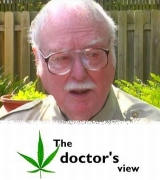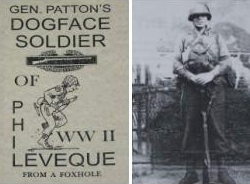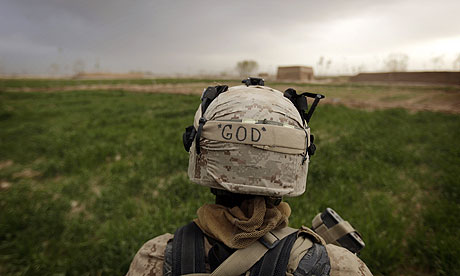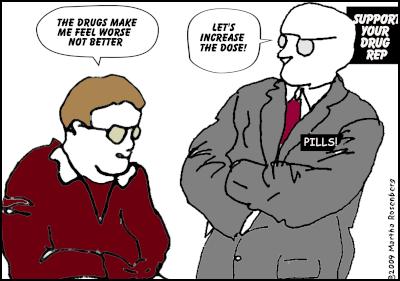 |
| BLOOMBERG VIA GETTY IMAGES
|
via Journal of Clinical Psychiatry:
A Randomized, Double-Blind, Placebo-Controlled Study Evaluating the Safety and Efficacy of Varenicline for Smoking Cessation in Patients With Schizophrenia or Schizoaffective Disorder
Jill M. Williams, MD; Robert M. Anthenelli, MD; Chad D. Morris, PhD; Joan Treadow, RN, BSN; John R. Thompson, PhD; Carla Yunis, MD, MPH; and Tony P. George, MD
J Clin Psychiatry 2012;73(5):654–660
10.4088/JCP.11m07522
Copyright 2012 Physicians Postgraduate Press, Inc.
Objective: Effective smoking cessation treatments are needed for patients with schizophrenia, who, compared with the general population, have high rates of cigarette smoking and more difficulty quitting. We evaluated the safety and efficacy of varenicline for smoking cessation in outpatients with stable schizophrenia or schizoaffective disorder.
Method: In this 12-week, randomized, double-blind, multicenter trial (May 8, 2008, to April 1, 2010), 127 smokers (≥ 15 cigarettes/d) with DSM-IV–confirmed schizophrenia or schizoaffective disorder received varenicline or placebo (2:1 ratio). The primary outcome was safety and tolerability of varenicline assessed by adverse events frequency and changes in ratings on the Positive and Negative Syndrome Scale and other psychiatric scales from baseline to 24 weeks. Abstinence was defined as no smoking 7 days prior to weeks 12 and 24, verified by carbon monoxide level.
Results: Eighty-four participants received varenicline; 43, placebo. At 12 weeks (end of treatment), 16/84 varenicline-treated patients (19.0%) met smoking cessation criteria versus 2/43 (4.7%) for placebo (P = .046). At 24 weeks, 10/84 (11.9%) varenicline-treated and 1/43 (2.3%) placebo-treated patients, respectively, met abstinence criteria (P = .090). Total adverse event rates were similar between groups, with no significant changes in symptoms of schizophrenia or in mood and anxiety ratings. Rates of suicidal ideation adverse events were 6.0% (varenicline) and 7.0% (placebo) (P = 1.0). There was 1 suicide attempt by a varenicline patient with a lifetime history of similar attempts and no completed suicides.
Conclusions: Varenicline was well tolerated, with no evidence of exacerbation of symptoms, and was associated with significantly higher smoking cessation rates versus placebo at 12 weeks. Our findings suggest varenicline is a suitable smoking cessation therapy for patients with schizophrenia or schizoaffective disorder.
Trial Registration: ClinicalTrials.gov identifier: NCT00644969
J Clin Psychiatry 2012;73(5):654–660
© Copyright 2012 Physicians Postgraduate Press, Inc.
Submitted: November 8, 2011; accepted February 28, 2012(doi:10.4088/JCP.11m07522).
Corresponding author: Jill M. Williams, MD, UMDNJ-Robert Wood Johnson Medical School, 317 George St, Ste 105, New Brunswick, NJ 08901 (williajm@umdnj.edu). here
I can't help but be suspicious of the conclusion offered in this article. "Varenicline was well tolerated, with no evidence of exacerbation of symptoms." This conclusion definitely helps secure a place in the market for Chantix as a stop smoking aid for people with a diagnosis of schizophrenia or schizoaffective disorder. What is strange is the trial was conducted at nine different sites. Why? There were only 128 participants...This article only mentions one suicide attempt; it does not mention any incidences of adverse effects commonly associated with Chantix. The trial was conducted by Pfizer, in it's own facilities, the primary outcome measure was safety, and no safety issues were identified in the study.
This trial trial was conducted for the primary purpose of exploiting psychiatric patients as a means to an end, the end being increasing the market for Chantix, to fulfill Pfizer's marketing agenda... It's obvious from reading this, they expected to have serious safety problems; yet luckily for Pfizer's marketing department and for Pfizer it's stockholders, there was, the authors state, "no evidence of problems." Pfizer found no evidence that Chantix can cause and/or exacerbate psychosis, as is well-documented in the FDA AERS data.
According to the FDA Adverse Event Reporting System: CHANTIX had the highest number of adverse events reported to the FDA for psychiatric symptoms in the second quarter of 2010. The reason? Increased levels of hostility, aggression, and increased symptoms of psychosis...
via The Institute For Safe Medication Practices:
QuarterWatch: 2010 Quarter 2
Monitoring MedWatch Reports
January 27, 2011
Signals for Varenicline, Levofloxacin and Fentanyl
Varenicline (CHANTIX)
Safety Problems Continue
"Despite a prominent boxed warning, a mandatory Medication Guide for every patient and declining use, the stop-smoking drug varenicline (CHANTIX) continued to account for large numbers of reported serious psychiatric side effects. In the second quarter the drug was suspect in more possible cases of hostility-aggression, depression and psychosis than any other monitored drug." here
31 Prescription Drugs Are Linked to 387 Homicides
and 1,527 acts of violence...
via PLoS ONE:
Prescription Drugs Associated with Reports of Violence Towards Others
Moore TJ, Glenmullen J, Furberg CD (2010) Prescription Drugs Associated with Reports of Violence Towards Others. PLoS ONE 5(12): e15337. doi:10.1371/journal.pone.0015337
a couple of excerpts:
"These data provide new evidence that acts of violence towards others are a genuine and serious adverse drug event that is associated with a relatively small group of drugs. Varenicline, which increases the availability of dopamine, and serotonin reuptake inhibitors were the most strongly and consistently implicated drugs."
"This study, however, contains numerous features intended to minimize the limitations of adverse event data from postmarketing surveillance. The proportional reporting ratio takes into account two possibilities: a) that wider use or a higher reporting rate exposes a drug to a greater chance of having a violence case attributed, and b) that a higher number of reports might have occurred by chance. The varying results among drugs for smoking cessation and the mood stabilizers show it is unlikely that the violence events are attributed to existing problems in the patient populations treated. Also, the focus of this study was on specific event terms that unequivocally described a violent act or thought – such as homicide or physical assault. By excluding more general adverse event terms such as “aggression” or “anger” many thousands of less specific cases were eliminated under the study criteria. While this means that the study did not count many possible cases of violence towards others (a loss of sensitivity) the restrictive criteria increased specificity. However, given that violent thoughts or actions are not typically attributed to drug therapy or recorded in medical records, the reporting rate for violence cases could be very low. The selected violence cases do not provide a reliable estimate of how often they might occur."
The SSRIS with the most reports of adverse events between 2004 and September 2009 were Prozac with 72 reports for violence defined as homicide, homicidal ideation, physical assault, physical abuse or violence related symptoms; Paxil had 177. read here

















